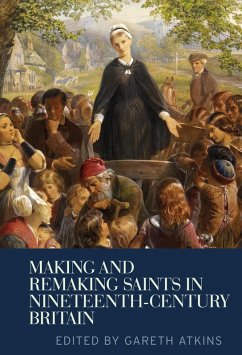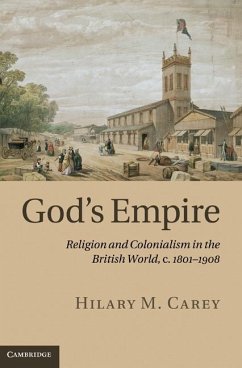
An Account of the Growth of Deism in England (eBook, ePUB)
Unveiling the Dawn of Deistic Ideas in England
Versandkostenfrei!
Sofort per Download lieferbar
0,49 €
inkl. MwSt.
Weitere Ausgaben:

PAYBACK Punkte
0 °P sammeln!
In "An Account of the Growth of Deism in England," William Stephens offers a meticulous exploration of the intellectual currents that shaped the rise of Deism during the Enlightenment. Engaging with both historical texts and philosophical discourses, Stephens employs a clear, analytical style that reflects the rationalist tendencies of his subject matter. The book critically examines the interplay between religion and emerging scientific thought, shedding light on key figures and pivotal texts that contributed to the Deist movement, ultimately situating Deism within the broader context of 17th...
In "An Account of the Growth of Deism in England," William Stephens offers a meticulous exploration of the intellectual currents that shaped the rise of Deism during the Enlightenment. Engaging with both historical texts and philosophical discourses, Stephens employs a clear, analytical style that reflects the rationalist tendencies of his subject matter. The book critically examines the interplay between religion and emerging scientific thought, shedding light on key figures and pivotal texts that contributed to the Deist movement, ultimately situating Deism within the broader context of 17th and 18th-century English philosophy. William Stephens, a noted scholar and historian of philosophy, composes this work during a time of burgeoning interest in rationalism and religious inquiry. His academic background, coupled with a deep engagement in contemporary debates about faith and reason, informs his nuanced perspective on the Deist phenomenon. As a keen observer of the socio-political changes of his era, Stephens articulates how these transformations influenced the evolution of religious thought in England. Richly informative and insightful, this book is recommended for scholars, students, and general readers interested in the intersections of philosophy, religion, and history. "An Account of the Growth of Deism in England" not only illuminates a significant movement but invites readers to reflect on the enduring questions of faith and reason.
Dieser Download kann aus rechtlichen Gründen nur mit Rechnungsadresse in A, B, BG, CY, CZ, D, DK, EW, E, FIN, F, GR, H, IRL, I, LT, L, LR, M, NL, PL, P, R, S, SLO, SK ausgeliefert werden.













